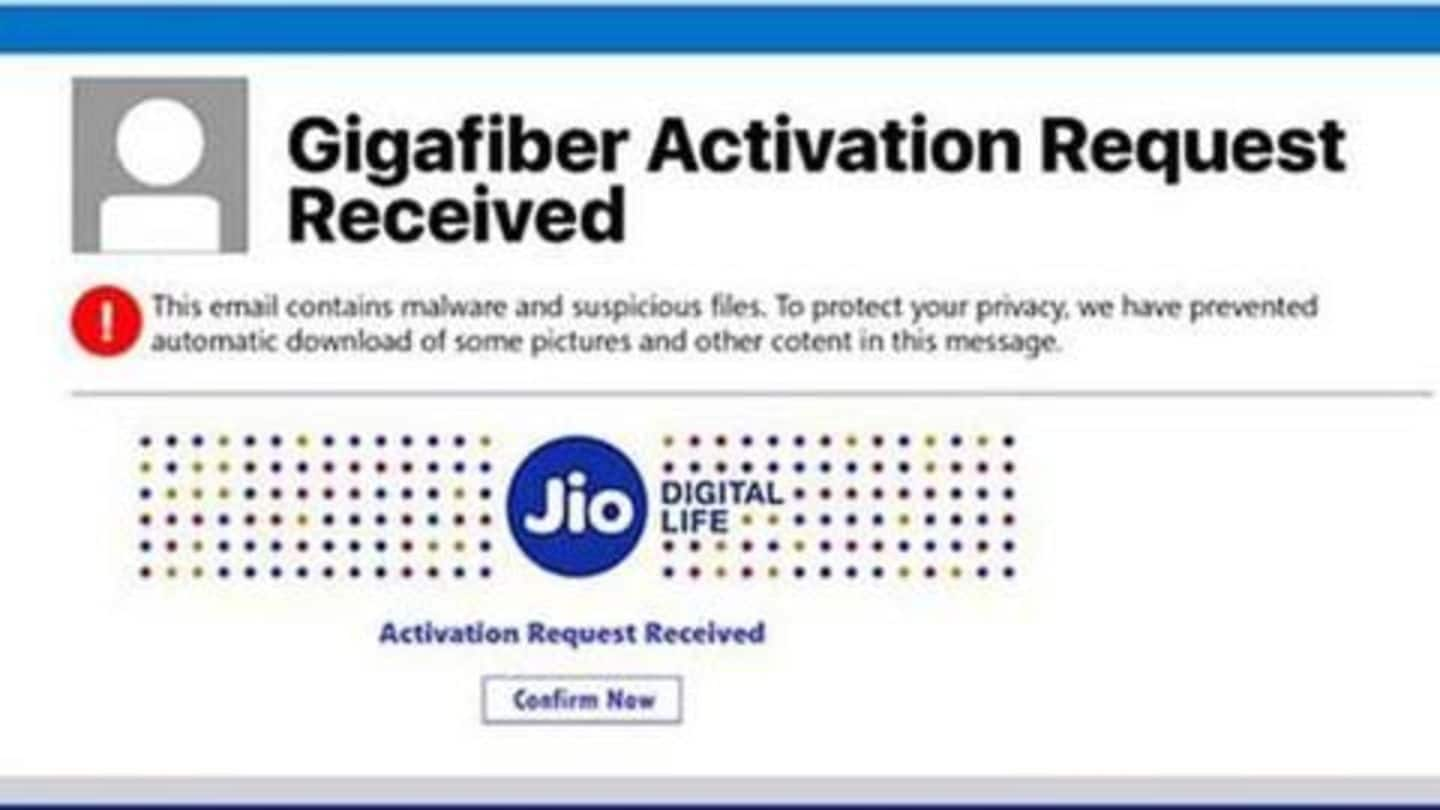
Reliance Jio GigaFiber activation email scam is stealing bank details
What's the story
There is a massive interest from users as Reliance prepares to commercially roll out Jio GigaFiber, its fiber-to-the-home broadband service, on September 5. And to cash in on the growing anticipation, scammers have started targeting consumers by sending them fake emails regarding 'activation requests' for the GigaFiber service, aiming to steal their banking details Here's everything you need to know about these fake emails.
The Bait
About the fraudulent email
According to reports, scammers are sending fraudulent emails with a subject or content image saying "Gigafiber - Activation Request Received." The contents give a feeling that it is an official mail, complete with company logo as well as links to confirm the subscription. However, once you click on it, you are directed to a site that asks for personal credentials including bank account details.
Process
How to spot these fake emails?
Identify the domain name (the part after '@' symbol). If it is an official mail, the domain should be jio.com. For fake websites, look out for http and https prefixes. The former shouldn't be trusted with personal information and payment details. Moreover, you can look for copyright information, trademarks, company details, spelling errors, broken links, etc. to assess the veracity of such emails.
Information
What to do if you've received such an email?
If you have received a fraudulent or suspicious-looking email, you can reach out to Jio customer care via phone or e-mail to confirm if they have sent an email like that. If they haven't, you can block the sender and report the email as spam.
Process
Meanwhile, here's how to get a Jio GigaFiber connection
The registrations for Jio GigaFiber are already underway and you can apply for a new connection from the official website by providing your credentials. Once the registration is complete and the location is verified by Jio, a company engineer will visit your house/society and install the service. The installation of a connection will be done for free during the initial roll-out of the service.